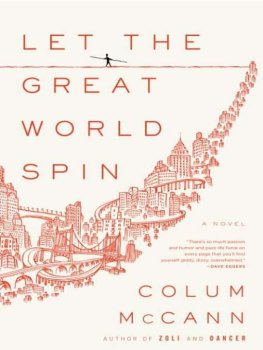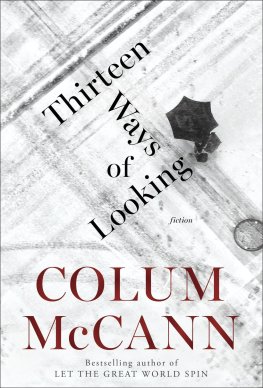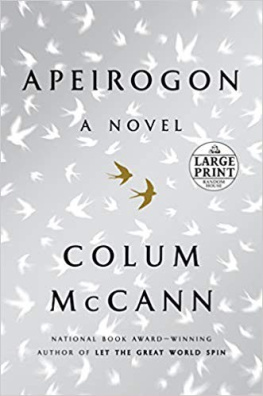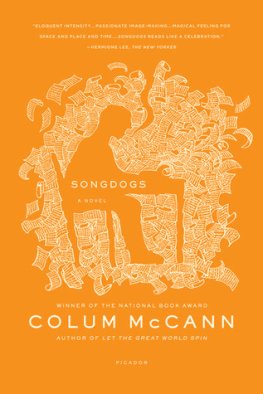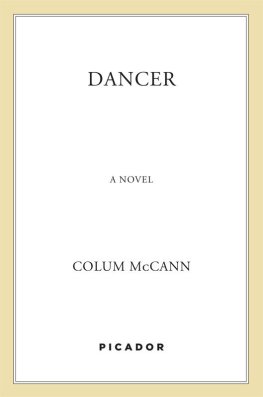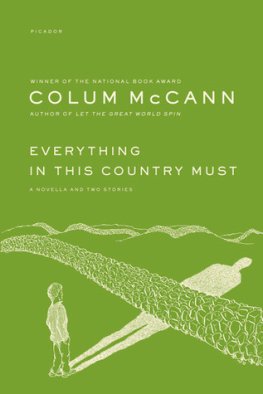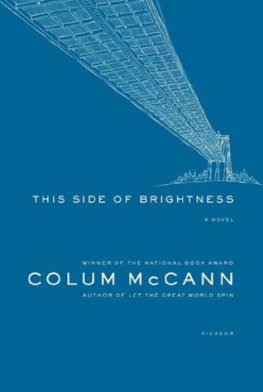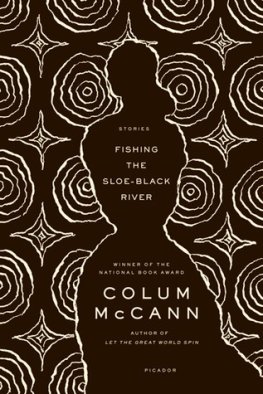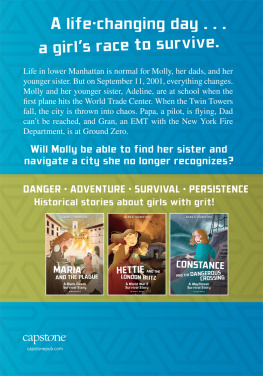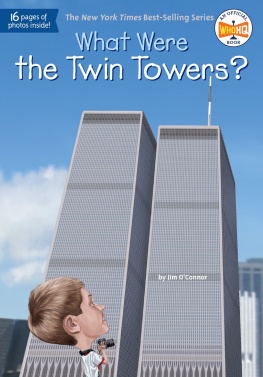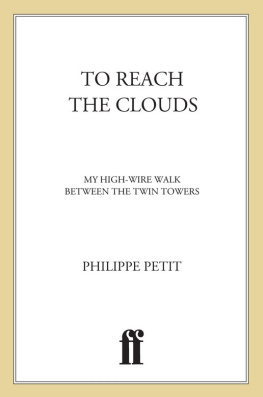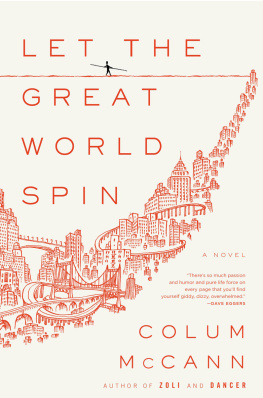Let the Great World Spin
A Novel by
Colum McCann
For John, Frank, and Jim.
And, of course, Allison.
All the lives we could live,
all the people we will never know,
never will be,
they are everywhere.
That is what the world is.
Aleksandar Hemon,THE LAZARUS PROJECT
2009 National Book Award Winner
Amazon.coms Book of the Year
Oprah.coms Books You Cant Put Down
Summer Reading Selection
In the dawning light of a late-summer morning, the people of lower Manhattan stand hushed, staring up in disbelief at the Twin Towers. It is August 1974, and a mysterious tightrope walker is running, dancing, leaping between the towers, suspended a quarter mile above the ground. In the streets below, a slew of ordinary lives become extraordinary in bestselling novelist Colum McCanns stunningly intricate portrait of a city and its people.
Let the Great World Spin is the critically acclaimed authors most ambitious novel yet: a dazzlingly rich vision of the pain, loveliness, mystery, and promise of New York City in the 1970s.
Corrigan, a radical young Irish monk, struggles with his own demons as he lives among the prostitutes in the middle of the burning Bronx. A group of mothers gather in a Park Avenue apartment to mourn their sons who died in Vietnam, only to discover just how much divides them even in grief. A young artist finds herself at the scene of a hit-and-run that sends her own life careening sideways. Tillie, a thirty-eight-year-old grandmother, turns tricks alongside her teenage daughter, determined not only to take care of her family but to prove her own worth.
Elegantly weaving together these and other seemingly disparate lives, McCanns powerful allegory comes alive in the unforgettable voices of the citys people, unexpectedly drawn together by hope, beauty, and the artistic crime of the century. A sweeping and radical social novel, Let the Great World Spin captures the spirit of America in a time of transition, extraordinary promise, and, in hindsight, heartbreaking innocence. Hailed as a fiercely original talent (San Francisco Chronicle), award-winning novelist McCann has delivered a triumphantly American masterpiece that awakens in us a sense of what the novel can achieve, confront, and even heal.
THOSE WHO SAW HIM HUSHED. On Church Street. Liberty. Cortlandt. West Street. Fulton. Vesey. It was a silence that heard itself, awful and beautiful. Some thought at first that it must have been a trick of the light, something to do with the weather, an accident of shadowfall. Others figured it might be the perfect city joke stand around and point upward, until people gathered, tilted their heads, nodded, affirmed, until all were staring upward at nothing at all, like waiting for the end of a Lenny Bruce gag. But the longer they watched, the surer they were. He stood at the very edge of the building, shaped dark against the gray of the morning. A window washer maybe. Or a construction worker. Or a jumper.
Up there, at the height of a hundred and ten stories, utterly still, a dark toy against the cloudy sky.
He could only be seen at certain angles so that the watchers had to pause at street corners, find a gap between buildings, or meander from the shadows to get a view unobstructed by cornicework, gargoyles, balustrades, roof edges. None of them had yet made sense of the line strung at his feet from one tower to the other. Rather, it was the man-shape that held them there, their necks craned, torn between the promise of doom and the disappointment of the ordinary.
It was the dilemma of the watchers: they didnt want to wait around for nothing at all, some idiot standing on the precipice of the towers, but they didnt want to miss the moment either, if he slipped, or got arrested, or dove, arms stretched.
Around the watchers, the city still made its everyday noises. Car horns. Garbage trucks. Ferry whistles. The thrum of the subway. The M22 bus pulled in against the sidewalk, braked, sighed down into a pothole. A flying chocolate wrapper touched against a fire hydrant. Taxi doors slammed. Bits of trash sparred in the darkest reaches of the alleyways. Sneakers found their sweetspots. The leather of briefcases rubbed against trouserlegs. A few umbrella tips clinked against the pavement. Revolving doors pushed quarters of conversation out into the street.
But the watchers could have taken all the sounds and smashed them down into a single noise and still they wouldnt have heard much at all: even when they cursed, it was done quietly, reverently.
They found themselves in small groups together beside the traffic lights on the corner of Church and Dey; gathered under the awning of Sams barbershop; in the doorway of Charlies Audio; a tight little theater of men and women against the railings of St. Pauls Chapel; elbowing for space at the windows of the Woolworth Building. Lawyers. Elevator operators. Doctors. Cleaners. Prep chefs. Diamond merchants. Fish sellers. Sad-jeaned whores. All of them reassured by the presence of one another. Stenographers. Traders. Deliveryboys. Sandwichboard men. Cardsharks. Con Ed. Ma Bell. Wall Street. A locksmith in his van on the corner of Dey and Broadway. A bike messenger lounging against a lamppost on West. A red-faced rummy out looking for an early-morning pour.
From the Staten Island Ferry they glimpsed him. From the meatpacking warehouses on the West Side. From the new high-rises in Battery Park. From the breakfast carts down on Broadway. From the plaza below. From the towers themselves.
Sure, there were some who ignored the fuss, who didnt want to be bothered. It was seven forty-seven in the morning and they were too jacked up for anything but a desk, a pen, a telephone. Up they came from the subway stations, from limousines, off city buses, crossing the street at a clip, refusing the prospect of a gawk. Another day, another dolor. But as they passed the little clumps of commotion they began to slow down. Some stopped altogether, shrugged, turned nonchalantly, walked to the corner, bumped up against the watchers, went to the tips of their toes, gazed over the crowd, and then introduced themselves with a Wow or a Gee-whiz or a Jesus H. Christ.
The man above remained rigid, and yet his mystery was mobile. He stood beyond the railing of the observation deck of the south tower at any moment he might just take off.
Below him, a single pigeon swooped down from the top floor of the Federal Office Building, as if anticipating the fall. The movement caught the eyes of some watchers and they followed the gray flap against the small of the standing man. The bird shot from one eave to another, and it was then the watchers noticed that they had been joined by others at the windows of offices, where blinds were being lifted and a few glass panes labored upward. All that could be seen was a pair of elbows or the end of a shirtsleeve, or an arm garter, but then it was joined by a head, or an odd-looking pair of hands above it, lifting the frame even higher. In the windows of nearby skyscrapers, figures came to look out men in shirtsleeves and women in bright blouses, wavering in the glass like fun-house apparitions.
Higher still, a weather helicopter executed a dipping turn over the Hudson a curtsy to the fact that the summer day was going to be cloudy and cool anyway and the rotors beat a rhythm over the warehouses of the West Side. At first the helicopter looked lopsided in its advance, and a small side window was slid open as if the machine were looking for air. A lens appeared in the open window. It caught a brief flash of light. After a moment the helicopter corrected beautifully and spun across the expanse.
Some cops on the West Side Highway switched on their misery lights, swerved fast off the exit ramps, making the morning all the more magnetic.

